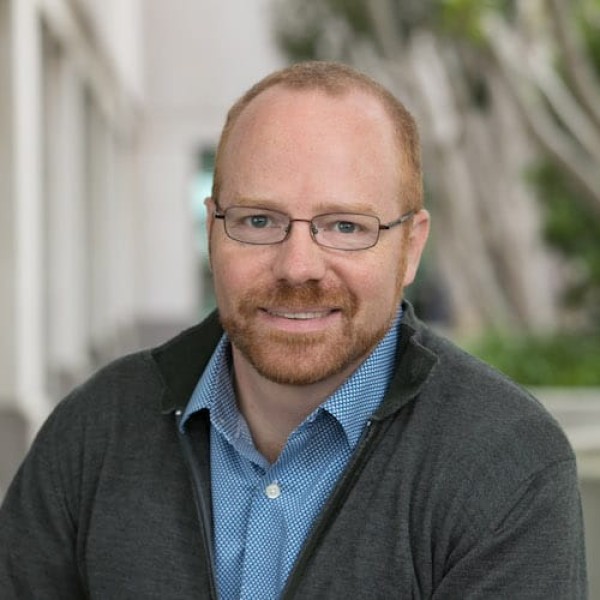
Heinrich Jasper
Principal Fellow, Regenerative Medicine, Research Biology
"After wonderful years in academic research exploring the biology of complex organisms, Genentech gives me the opportunity to apply my knowledge to real-world solutions. Its focus on cutting-edge basic research to advance drug development efforts is unique and makes it an exciting place for scientists interested in tackling complex diseases."
I was educated in Germany and spent 12 years running an academic lab at the University of Rochester and later the Buck Institute for Research on Aging. Studying the age-related decline of stem cell function and tissue homeostasis in model organisms made me appreciate the significant impact our findings could have on understanding and treating age-related and chronic diseases. I feel that there is no better place to exploit that insight than Genentech. The collaborative and goal-oriented spirit at Genentech is exactly what is needed to tackle the many unmet medical needs of an aging population.
Postdoctoral Mentor
The best work I have done has been in collaboration with postdoctoral fellows. The incredible enthusiasm, dedication, and creativity that young scientists bring to the table reinvigorates my work every day. Mentoring the next generation of scientific leaders is an inspiring and rewarding task, and is taken very seriously at Genentech. For aspiring young scientists, the research environment at Genentech is among the best in the world and affords unrivaled opportunities.
Featured Publication
Immune modulation by MANF promotes tissue repair and regenerative success in the retina.
Science. 2016 Jul 1;353(6294):aaf3646.
Neves J, Zhu J, Sousa-Victor P, Konjikusic M, Riley R, Chew S, Qi Y, Jasper H, Lamba DA.
Signal integration by Ca(2+) regulates intestinal stem-cell activity.
Nature. 2015 Dec 10;528(7581):212-7.
Deng H, Gerencser AA, Jasper H.
My work has focused on stress and inflammatory signaling pathways that influence tissue homeostasis and longevity.
In recent years, my lab has investigated the regulation of somatic stem cells and the many intrinsic, local and systemic cues that control somatic stem cell behavior, both in homeostasis and in disease conditions. A particular focus has been understanding how age-associated chronic inflammation perturbs regeneration in barrier epithelia.
We have further explored mechanisms regulating photoreceptor cell death and survival in the injured retina, and have identified strategies for immune modulation that increase the efficacy of cell replacement therapies in this tissue. We are exploring translational strategies based on this work.
- University of Heidelberg, Germany, Ph.D. in Biology – 2002
- University of Tübingen, Germany, Diploma in Biochemistry – 1998
- Cancer Prevention and Research Institute of Texas, Rising Star Scholar Award (declined) – 2017
- Humboldt Professorship (declined) – 2015
- Breakthroughs in Gerontology Award, American Federation for Aging Research – 2014
- Hans Kupczyk Guest Professorship, University of Ulm – 2011
- Glenn Foundation Award for Research in Biological Mechanisms of Aging – 2010
- Wilmot Assistant Professorship in Art, Sciences and Engineering – 2009
- Senior Scholar Award of the Ellison Medical Foundation – 2008